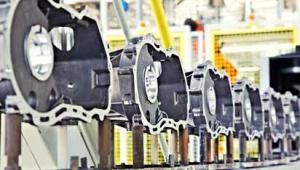The economic think-tank has forecast that the economy will grow 2% in 2016 before slowing in 2017.
The analysis stated that the Office for National Statistics preliminary estimate of 0.5% growth in the third quarter of this year was more robust than expected.
However, the outlook remains one of a slowing economy, NIESR’s head of macroeconomic modelling and forecasting Simon Kirby said.
“The positive outturns for GDP growth in the near term are very welcome, but these give little to no guidance as to what the long-run impact of leaving the EU will be,” he stated. Prime minister Theresa May has announced she will trigger the exit process in the first three months of 2017.
“The depreciation of sterling has been the most striking feature of the post-referendum economic landscape,” Kirby added. This will pass through into consumer prices over the coming months and quarters. By the end of 2017, we expect consumer price inflation to have reached almost 4%. While we expect this to be only a temporary phenomenon, it will nonetheless weigh on the purchasing power of consumers over the next couple of years.”
According to the NIESR projection, CPI inflation will only return to the Bank of England’s 2% target in 2020.
But the think-tank predicted that the Bank of England would not alter interest rates from the current level of 0.25% until the second half of 2019, when rates may begin to rise. However, they are only expected to reach 1.75%.
Measures taken by the Bank in August to cut interest rates and boost quantitative easing are expected to add as much as 0.67 of a percentage point to GDP, which would provide a £4bn annual boost to the public finances over the next five years.




















